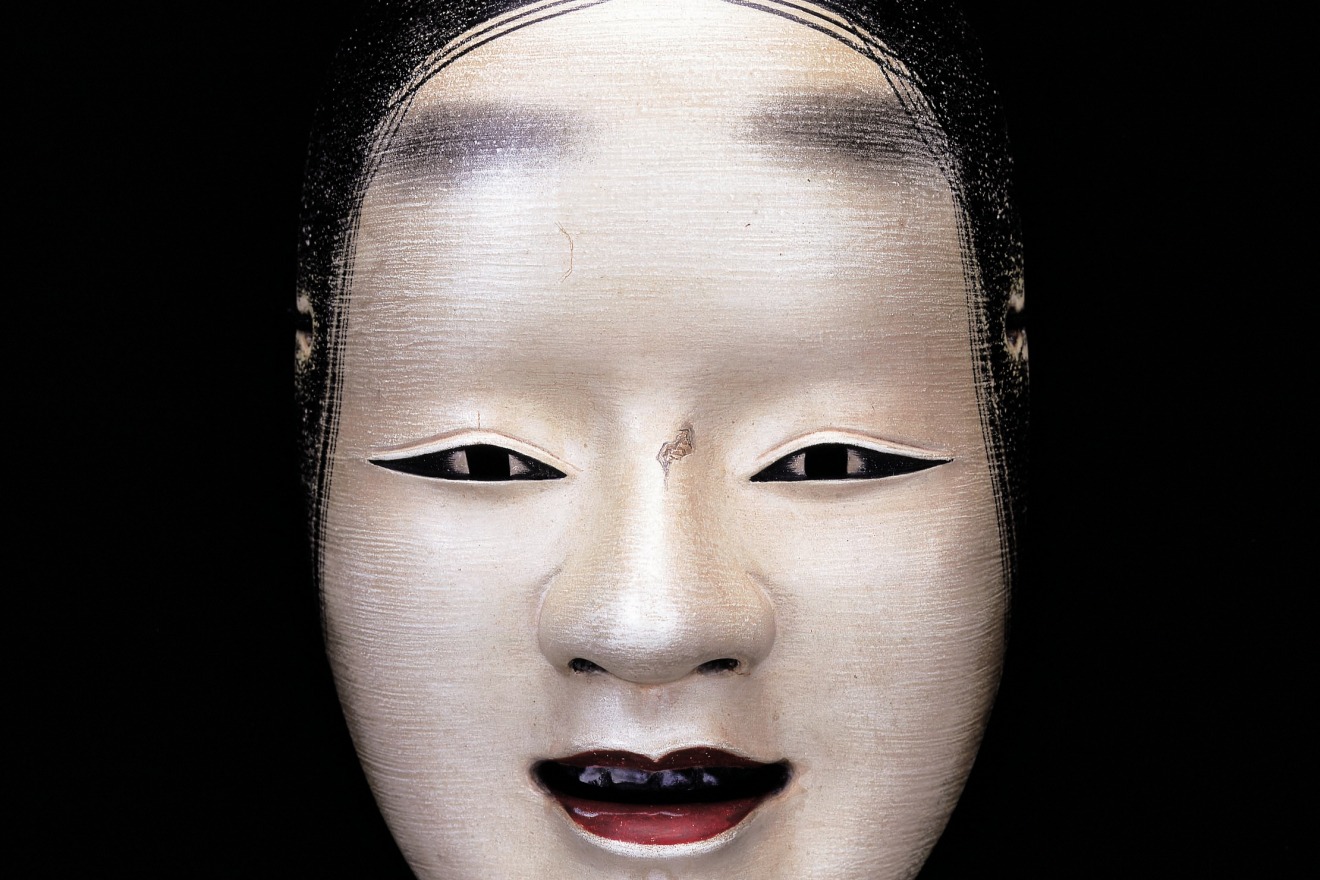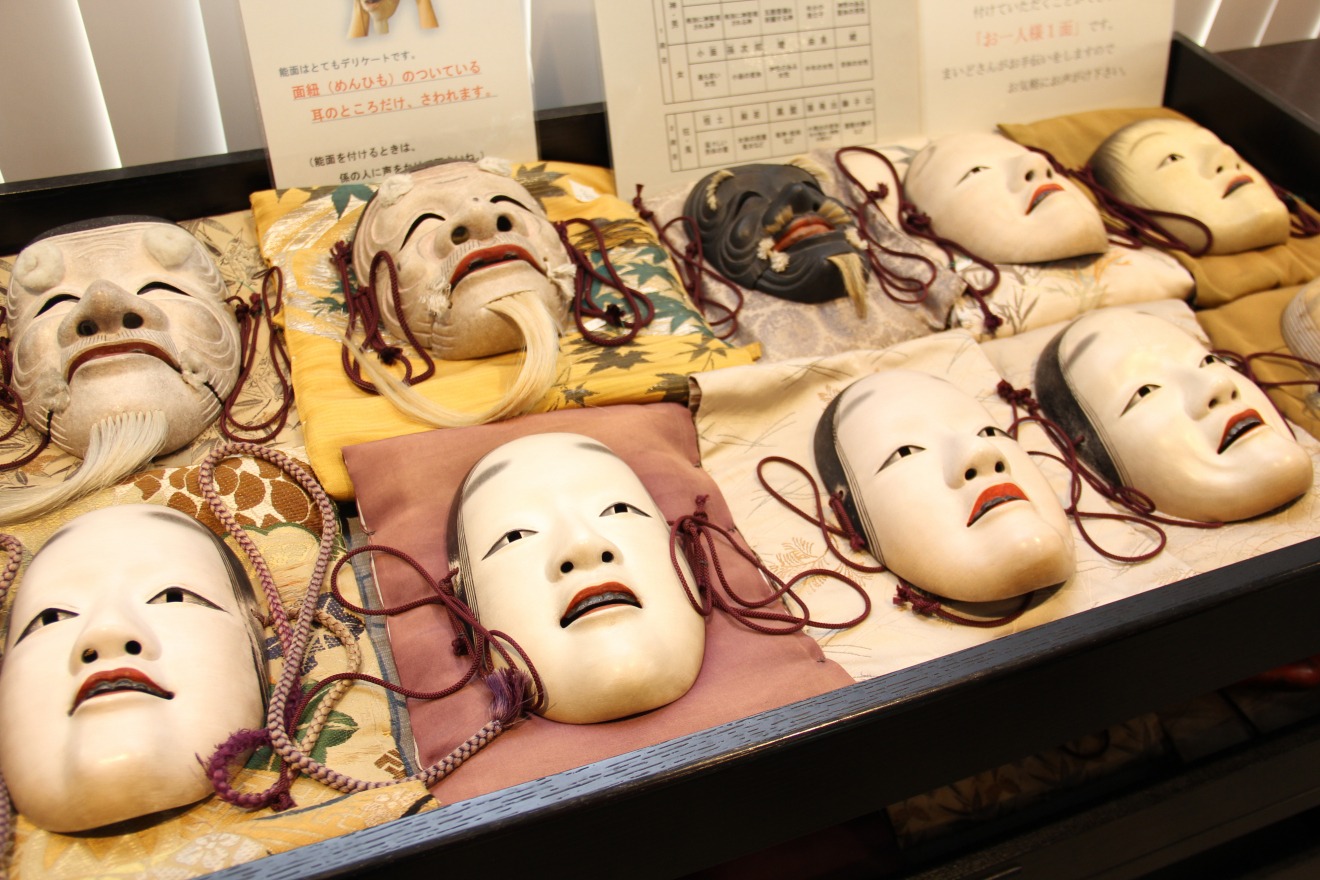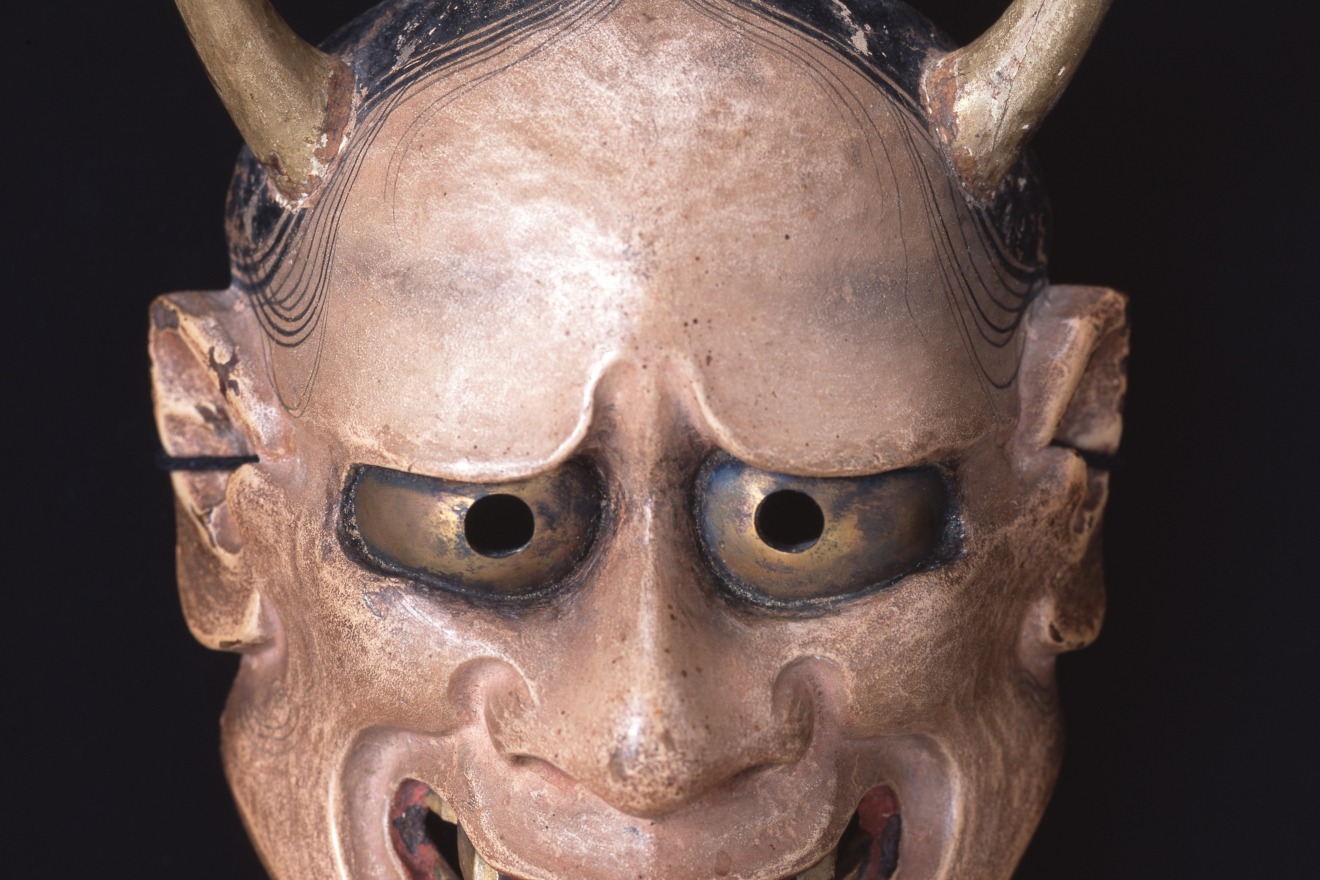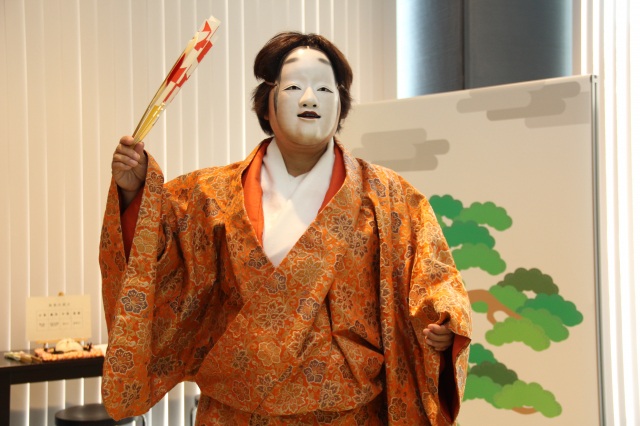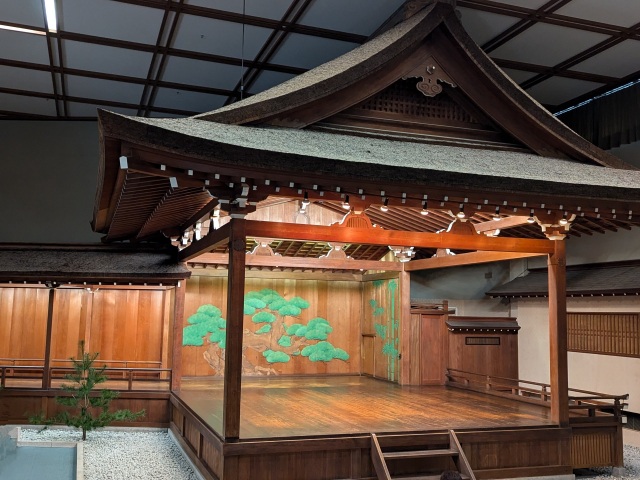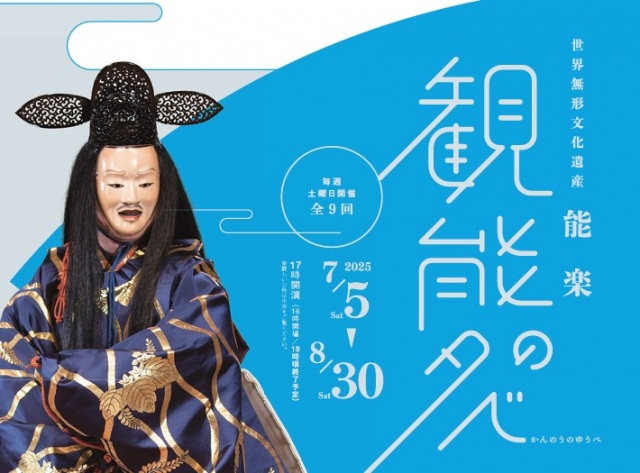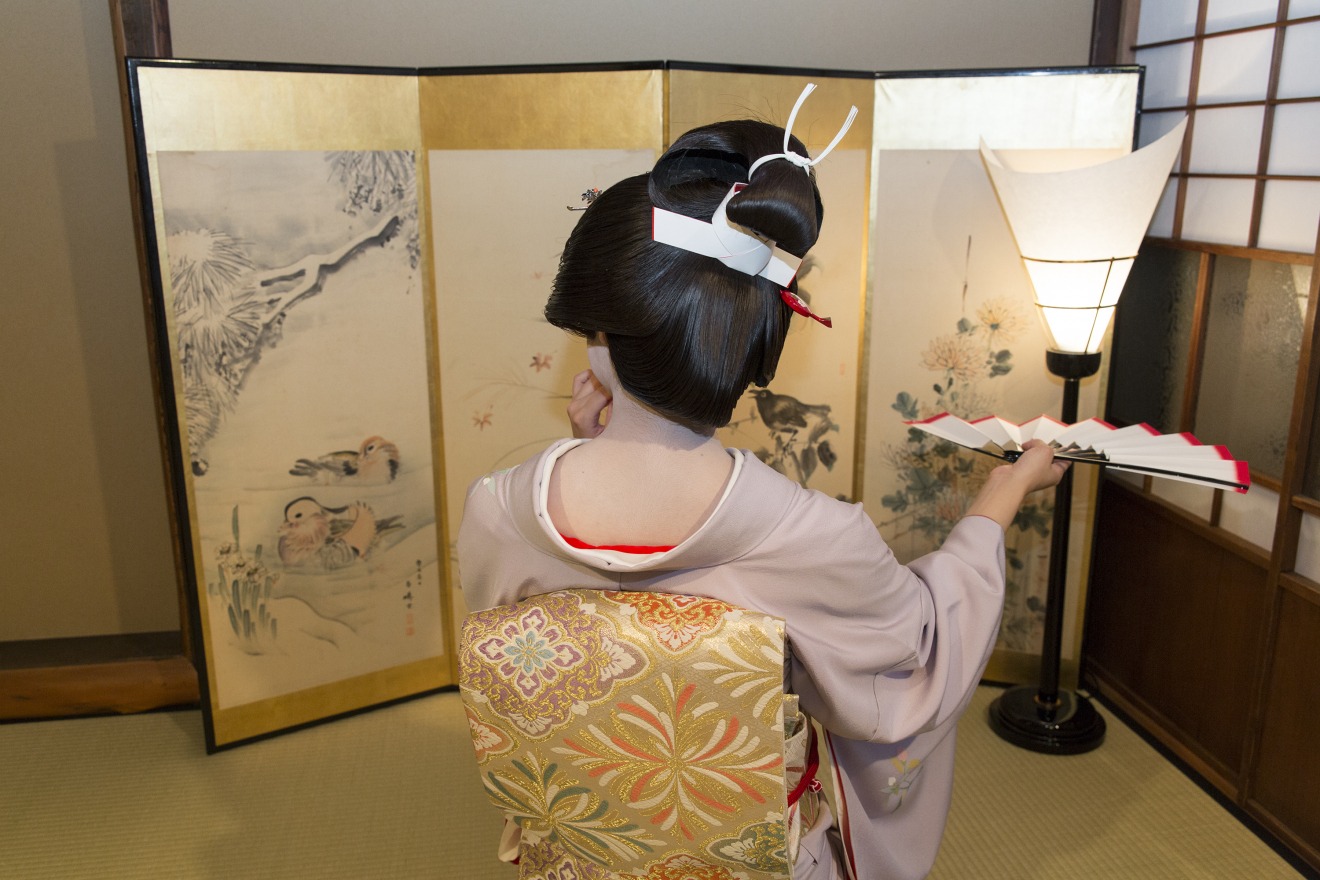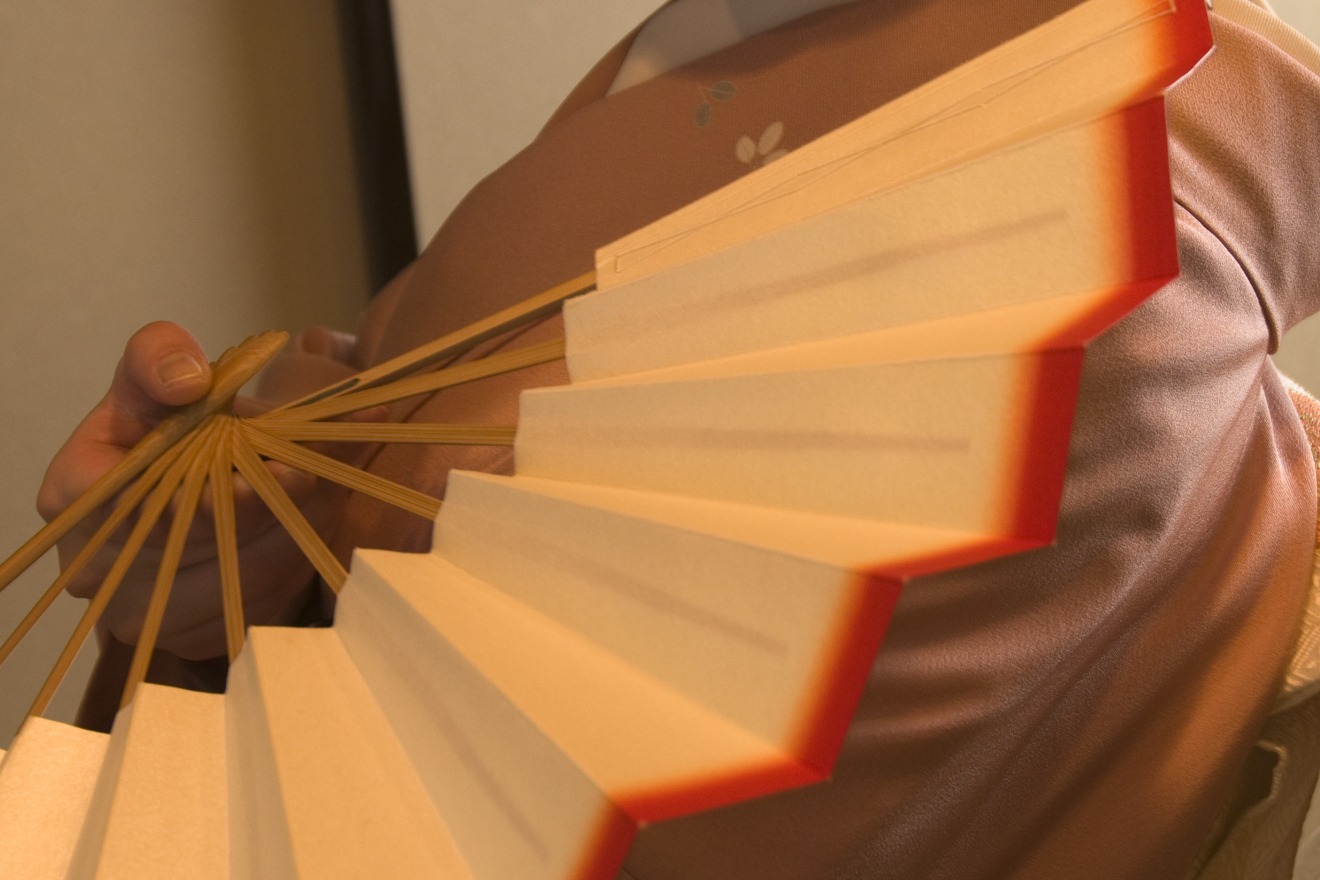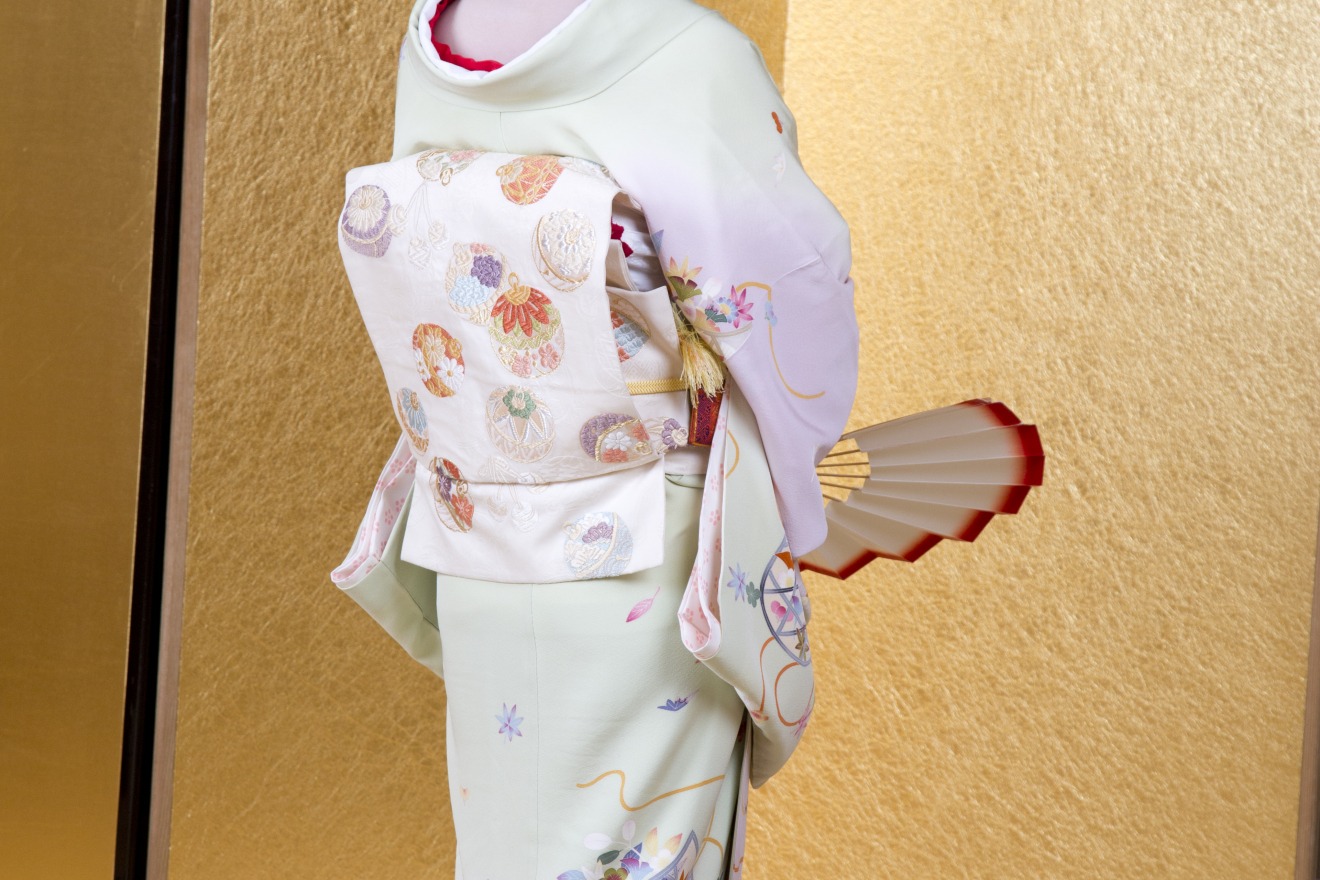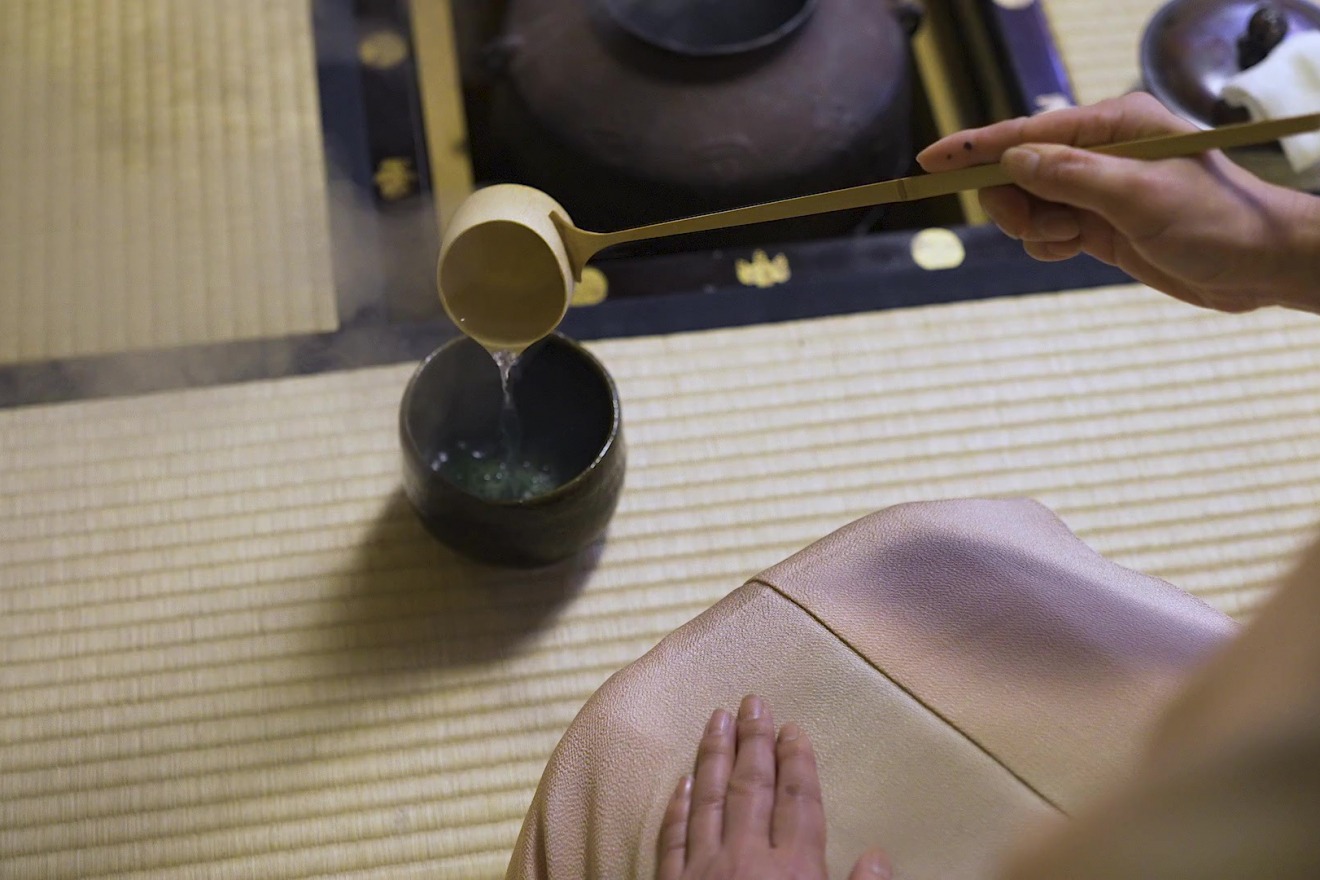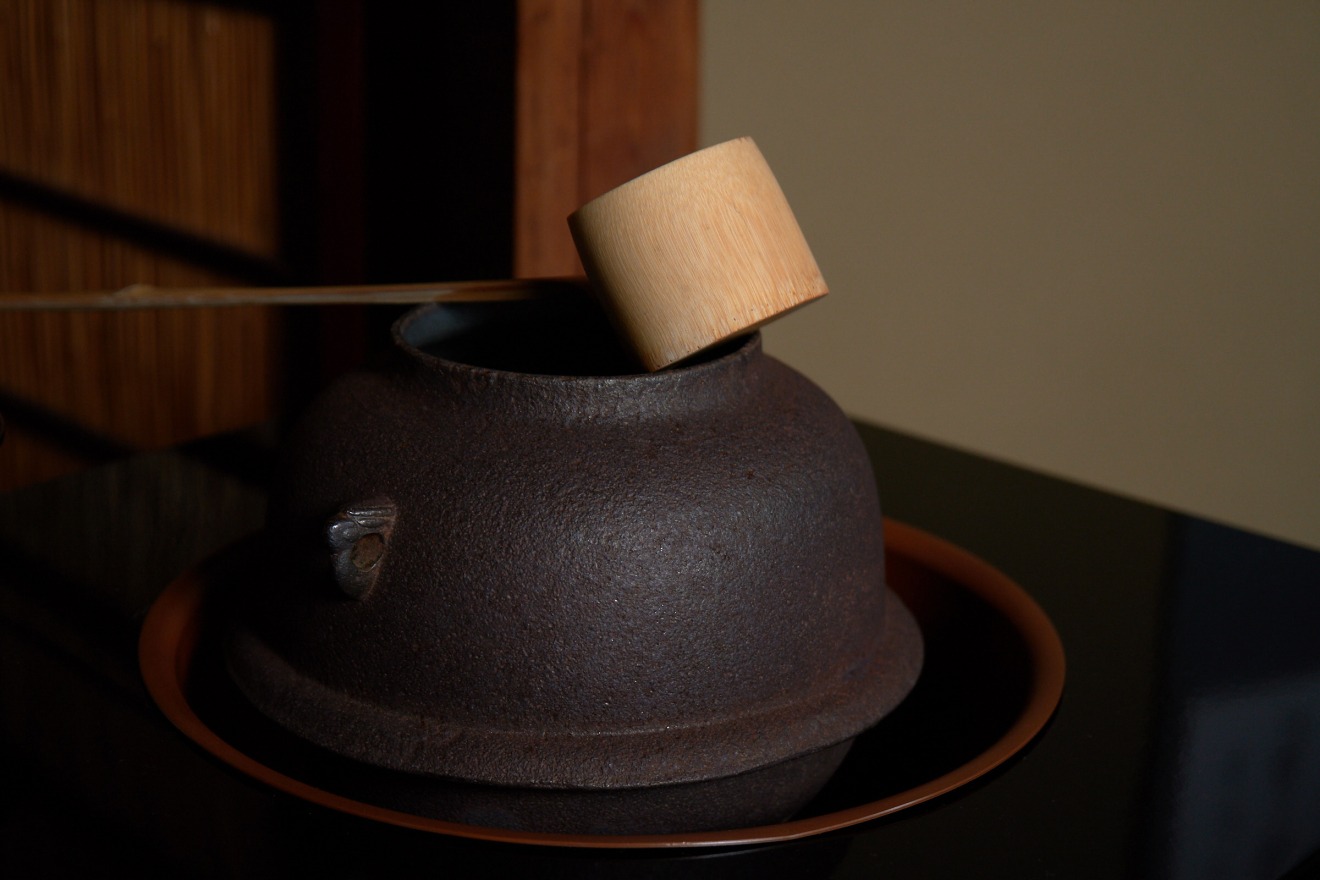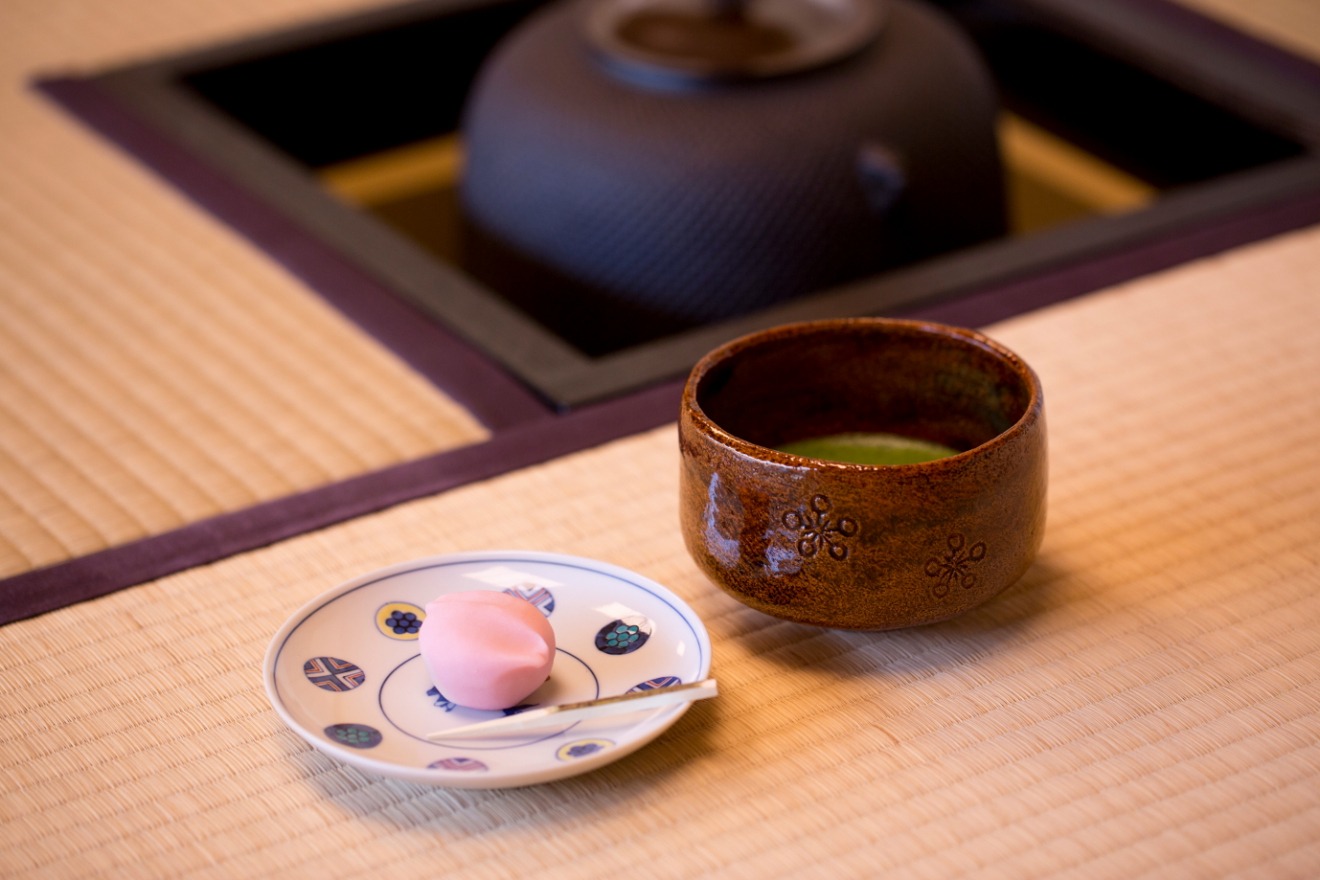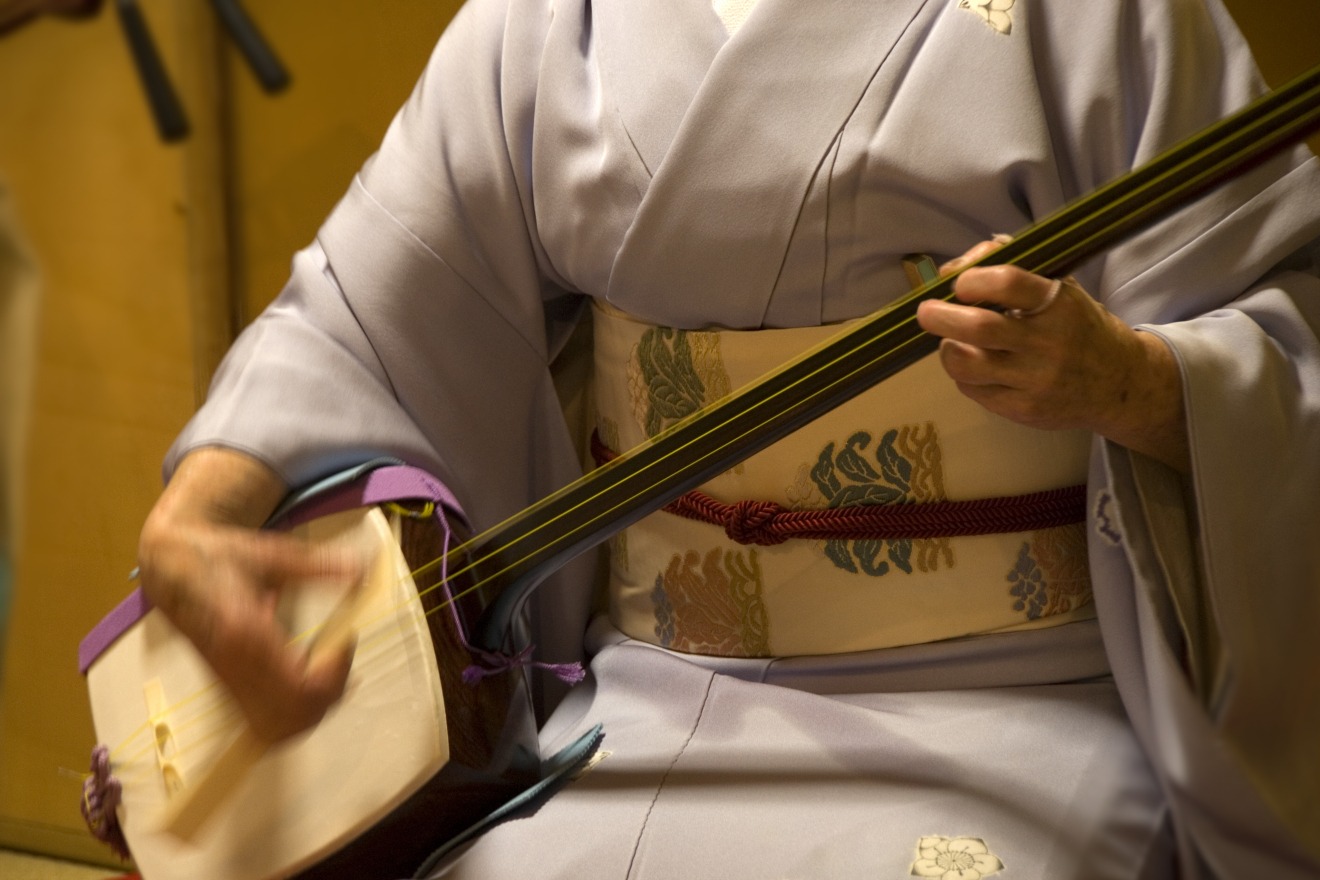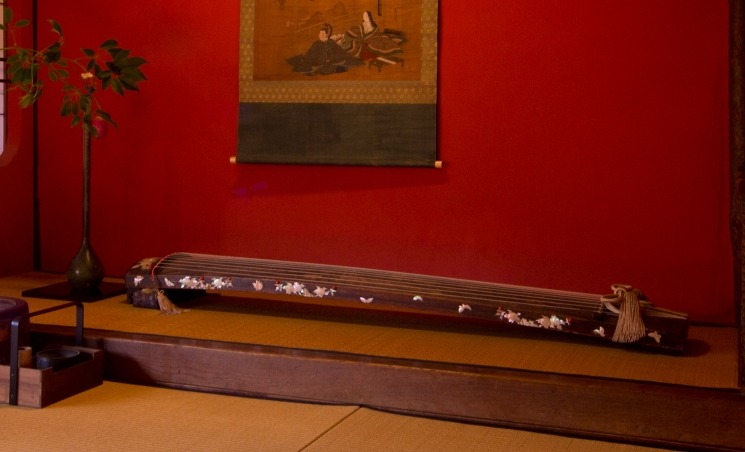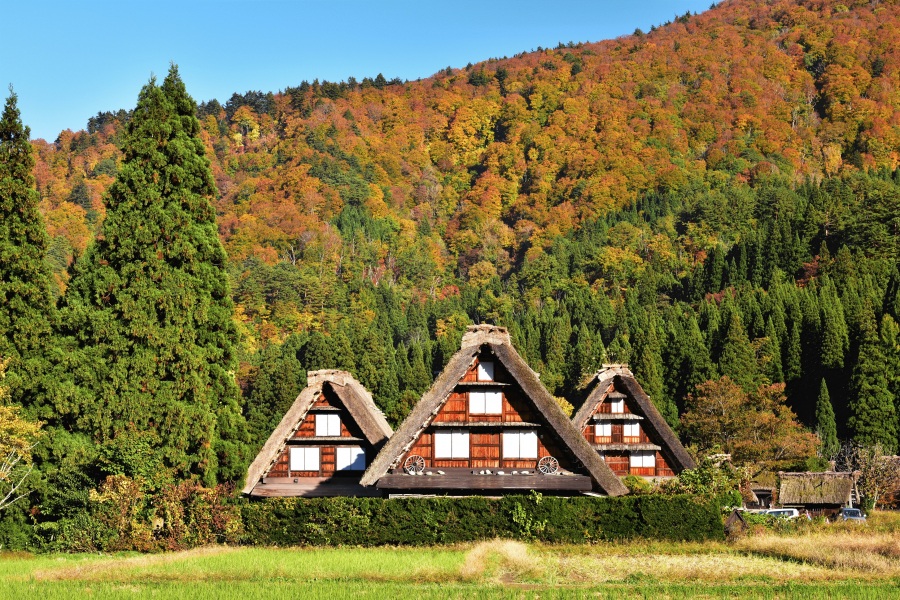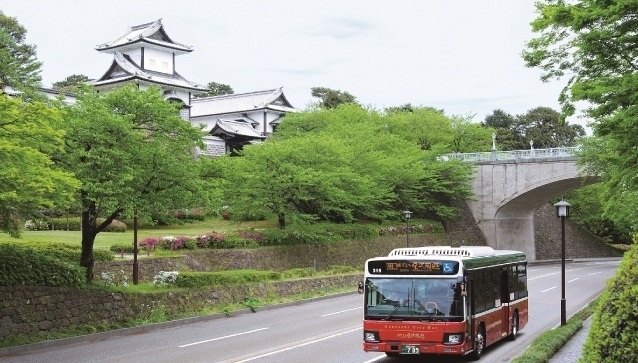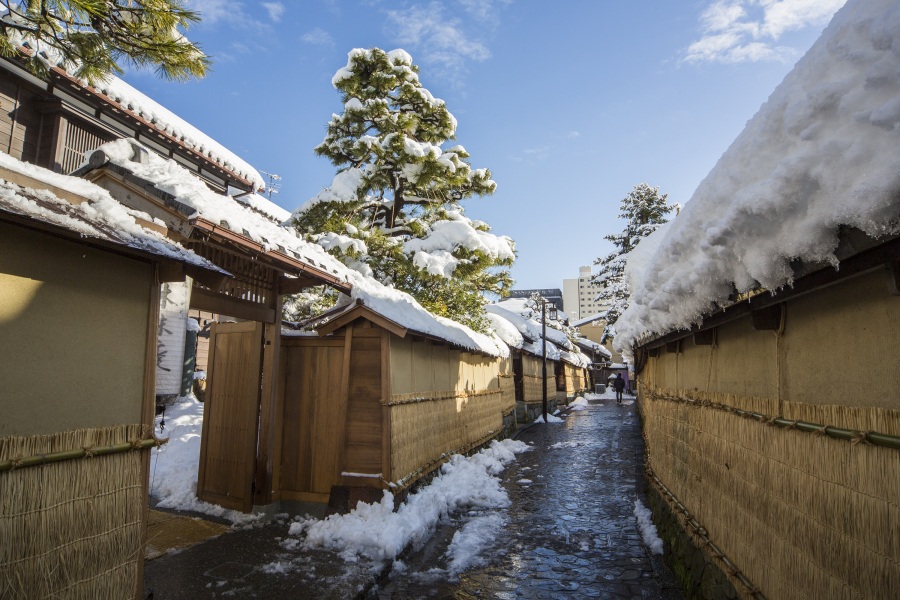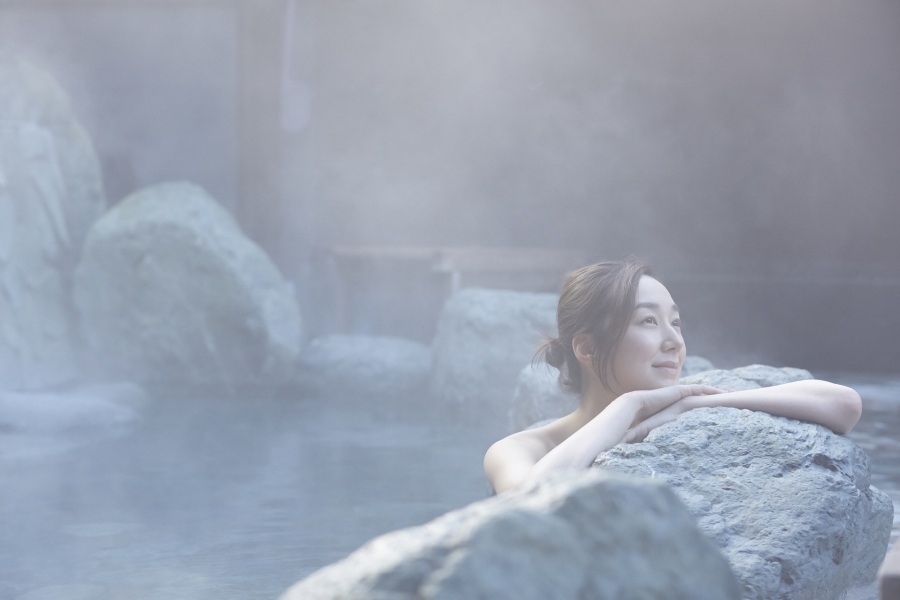Kanazawa's Patronage of Traditional Japanese Culture
The powerful Maeda clan brought peace and prosperity to the Kaga region, a part of modern-day Ishikawa Prefecture, where they made Kanazawa their seat of power. With peace and prosperity came a refined Japanese culture, furthered by the Maeda family's patronage and participation in many cultural activities.
That influence is easily seen in Kanazawa today. Every evening, you might hear the delicate sounds of the shamisen(three-stringed musical instrument) and singing of Kanazawa geigi (the local name for geisha) in the teahouse districts. Although many of these performances are exclusive, visitors can enjoy them during various casual events throughout the year.
The Maeda's patronage of tea ceremony, once a favorite pastime of the samurai class, is carried on by local citizens who continue to practice it and invite visitors to join in. You can find a number of facilities in Kanazawa where you can casually experience tea ceremony or have tea served to you.
Noh theater was once a part of samurai culture and the lords of the Kaga domain supported Noh, which spread beyond the samurai class to become popular with merchants and townspeople. You’ll find several events where you can casually watch Noh plays and facilities where you can try on Noh masks and costumes.
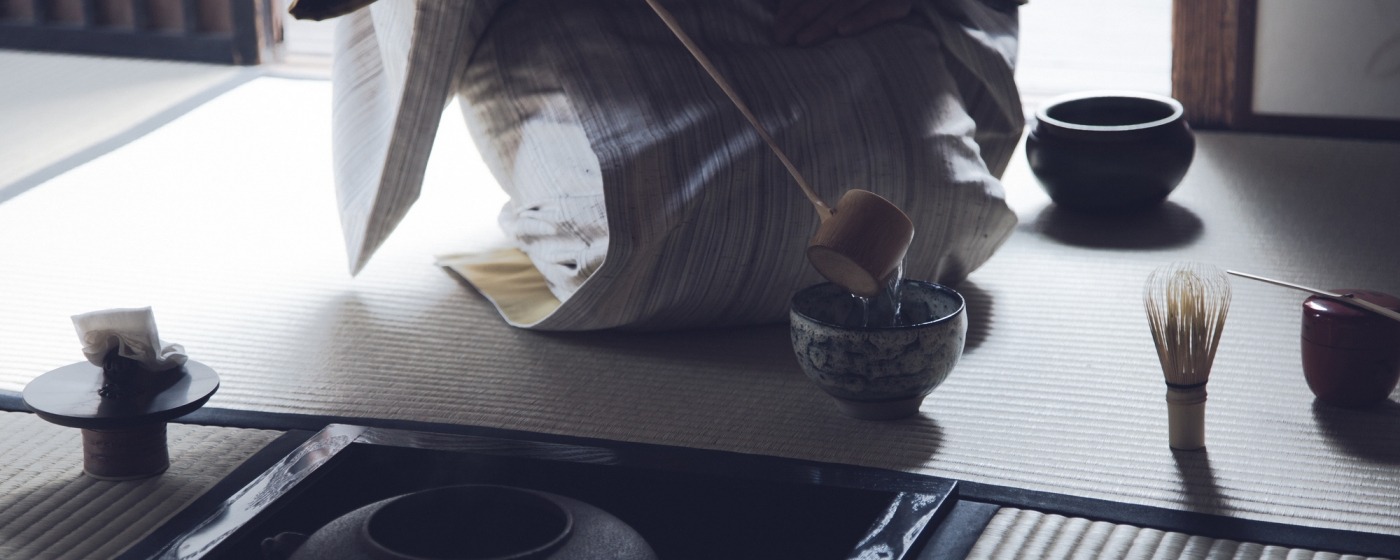
Kaga Hosho Noh performance
Going to Kanazawa to Enjoy Noh Performance
In Kanazawa people often say “Noh chants fall from the sky”, which means even gardeners working at the top of trees casually sing Noh chants to themselves. It proves that not only samurai warriors and merchants but also the common people enjoyed Noh performance. The Kaga Hosho school of Noh is designated as an intangible cultural asset of Kanazawa. The art of Noh is recognized as one of Masterpieces of the Oral and Intangible Heritage of Humanity by UNESCO.
Visit the Kanazawa Noh Museum, and you can enjoy Noh performance DVDs, the curator’s explanations from an actual Noh stage, and a precious costume and mask exhibit. You may even participate in a workshop and practice part of a Noh performance.
Needless to say, the Museum provides you with numerous opportunities to understand the charm of the Kaga Hosho school of Noh. At the Ishikawa Prefectural Noh Theater you can enjoy regularly scheduled performances and seminars. Why not come to Kanazawa and enjoy the art of Noh?
Kanazawa Geigi (Geisha)
Enjoy Geisha Performances to the fullest in the Higashi, Nishi and Kazue-machi chaya Districts
Characterized by their lattice windows, these lovely old wooden Geisha houses have been well preserved. Geishas in Kanazawa value their customs and ceremonies, handed down from generation to generation since the feudal era. Refined dance performances and the playing of various musical instruments have also been handed down.
Usually almost every Chaya (Geisha house) will refuse service to clients without an introduction. However, more casual events are also held, allowing anyone to enjoy Geisha singing and dancing.
Lessons on how to play the Ozashiki Daiko drums are also given. Why not organize a tour to Kanazawa and enjoy the sophistication of Geisha culture? In September the Kanazawa Odori is held. All Geishas from the three Chaya Districts give sophisticated and refined performances on stage.
GEISHA EVENINGS IN KANAZAWA
- Kanazawa Geigi no Mai
-
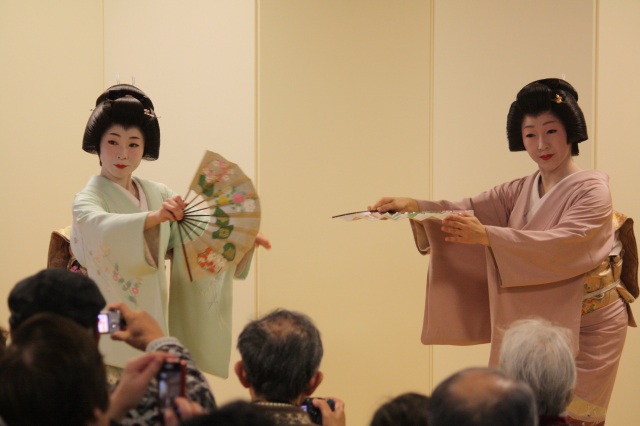
- Special performances of dancing, taiko drumming, and ozashiki games by Kanazawa Geisha
- more
- Walk with a Local | Afternoon & Twilight Walks in the Geiko Districts
-
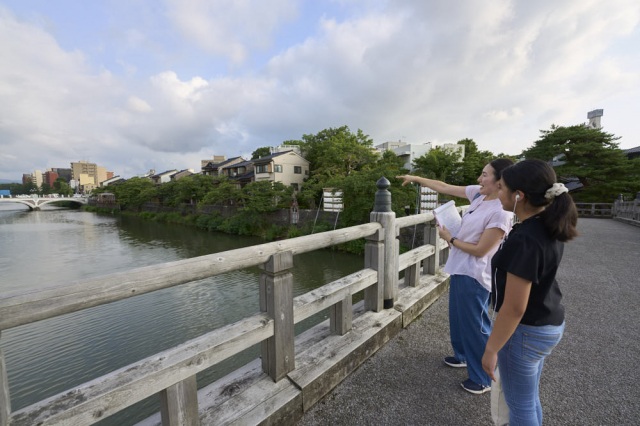
- Learn the history of Kanazawa Geiko while having a stroll in the two Geiko Districts - Higashi and Kazue-mach
- more
- Geiko Performance & Behind the Scenes Tour
-
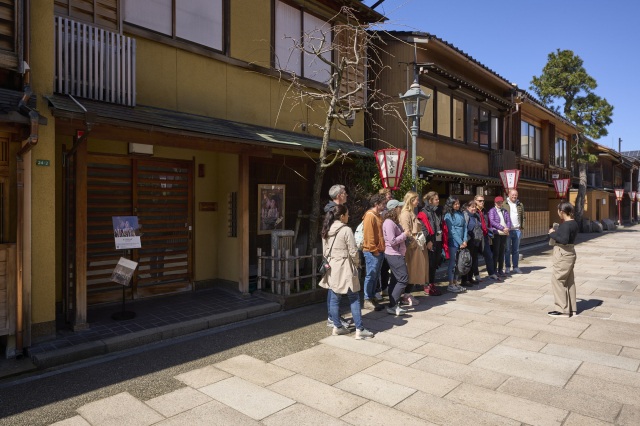
- Join a fun, exclusive Geiko house tour guided by Geiko themselves, and geiko performances (flute, dancing and taiko drums).
- more
- Kanazawa Geisha Experience 2025-26
-
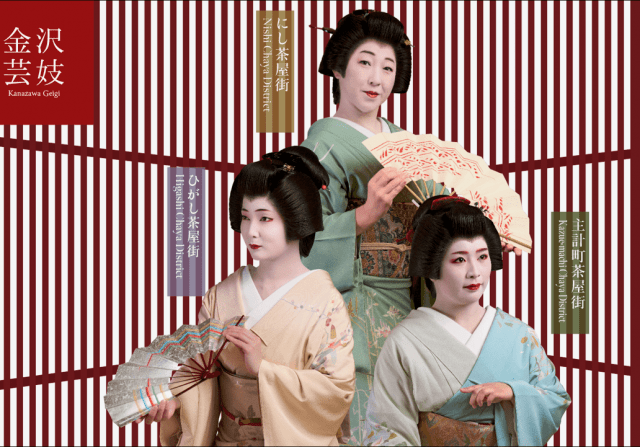
- Kanazawa Geisha’s Traditional Performing Arts and Hospitality
- more
- Geisha Entertainment (with meal)
-
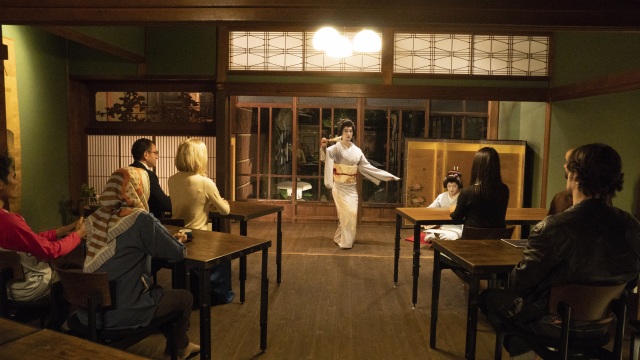
- more
Tea ceremony (Chado)
Deeply connected to Kanazawa's history
Cha-no-yu (Chado) is considered to have started in the Muromachi period (1336-1573). During the Sengoku period (1467-1568), Chado was one of the necessary accomplishments of a samurai warrior. Tea ceremonies were utilized as a symbol of samurai warriors’ power and prestige. They also served as a place to entertain their guests.
The first feudal lord, Maeda Toshiie, learned Chado from Sen-no-Rikyu, a great tea master, as well as Oda Urakusai, and helped develop Chado in the Kaga fiefdom. The third feudal lord, Maeda Toshitsune, invited Sen Soshitsu (Senso) of the Urasenke school of tea ceremony and took lessons from him. Thus the Urasenke school of tea ceremony has flourished in the Kaga fiefdom. When the fifth feudal lord, Maeda Tsunanori, governed Kanazawa, even artisans and townspeople enjoyed tea ceremony and acquired its etiquette.
In Kanazawa today, many people enjoy tea ceremony, taking lessons from tea masters of the Urasenke, Enshu and Sowa schools of tea ceremony. At historic buildings and gardens, various tea ceremonies are held all through the year.
JAPANESE TEA CULTURE
- Tea ceremony with Japanese traditional kimono. Experience the core of Japanese traditional culture in Kanazawa’s most picturesque historical districts!
-

- In a beautiful townhouse of the district, try on an authentic traditional outfit before attending a tea ceremony with kimono in the house’s tea room, all private
- more
- One of the most accessible Japanese tea experiences in Kanazawa!
-

- Near the Kenrokuen park, take a break to enjoy the tea ceremony in a casual and friendly way!
- more
- Soyu Tea Ceremony Experience
-
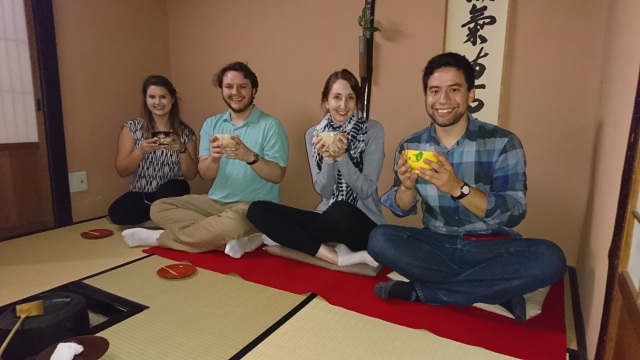
- Experience an authentic tea ceremony in a Kanazawa machiya located in the Higashi Chaya district of Kanazawa City.
- more
private tea ceremony experience in Kanazawa higashiyama -
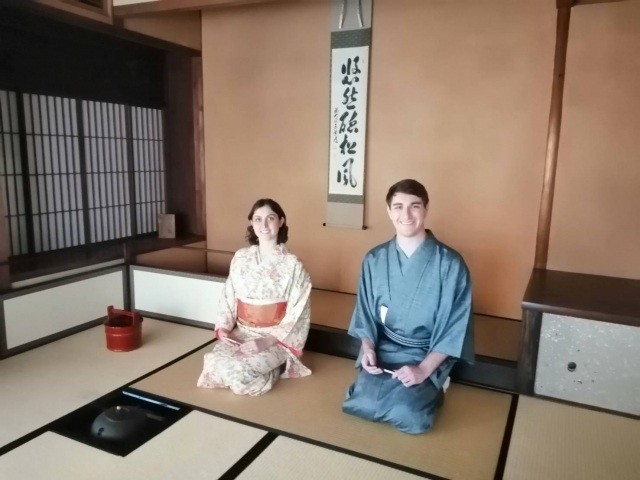
- Leave your busy daily life and enjoy a cup of tea in the quiet tea room. Take a break while you travel. all private
- more
- Tea ceremony & Making original incence
-
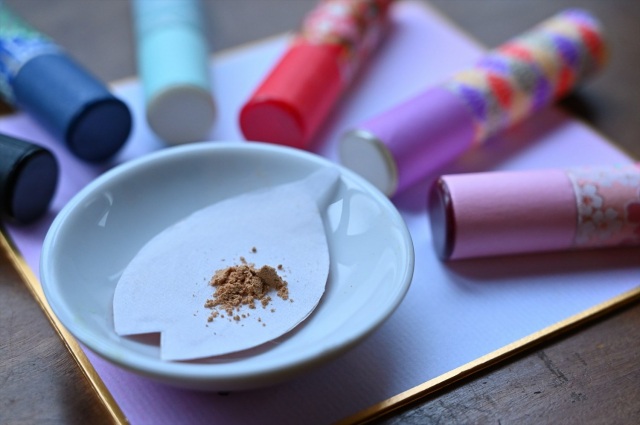
- This is a rare and advantageous special plan unique to Kanazawa Machiyajuku, where you can experience both incense and tea ceremony in a private tea room.
- more
Koto, Sangen musical instruments
Play a Japanese Musical Instrument
During the Edo period (1603-1867) samurai warriors’ wives and daughters would lean the Koto (Japanese zither) and Shamisen or Sangen (three strings) . Even today, quite a few women study these traditional musical instruments.
There are fewer and fewer artisans who practice koto-crafting as an art form, decorating it with the Makie or Raden (mother of pearl). Luckily there are still a number of Kanazawa shops where these skilled artisans continue to ply their trade. You can drop in at these shops and try your hand at Koto or the Shamisen. It will no doubt be a rare experience during your trip.
- Cultural Arts Night Theatre
-
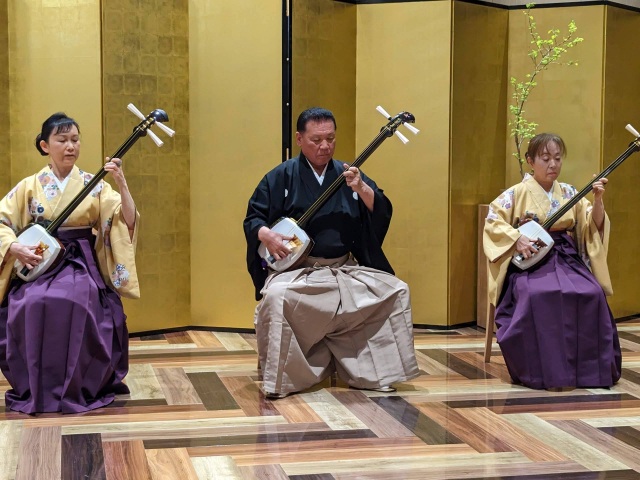
- An easy viewing of Kanazawa's traditional culture.
- more
